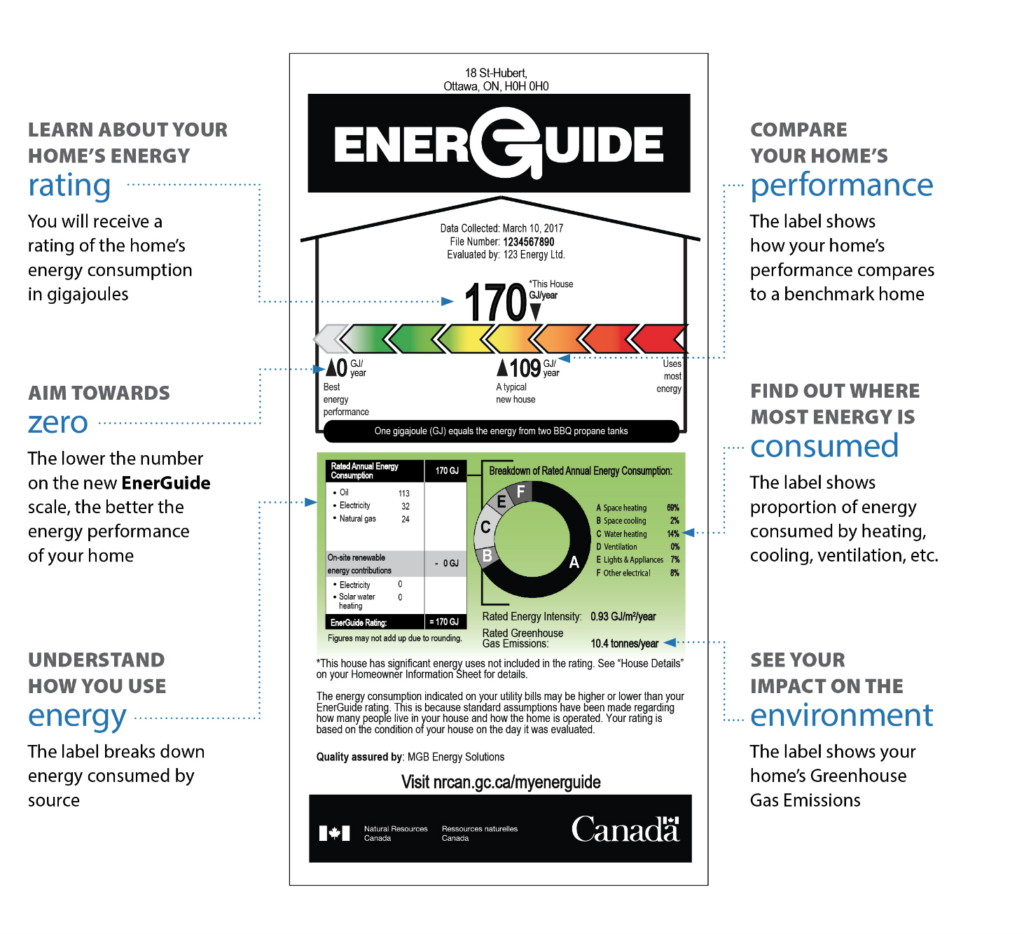With inflation on the rise and interruptions to energy supplies, now is the time to review how efficient your home heating system is. Let’s explore the benefits of an efficient home heating system and some tips for home energy savings to keep you house warm in the winter and cool in the summer.
To help improve the energy efficiency of your home heating and cooling systems, it will reduce energy consumption, lower energy bills, and contribute to a more sustainable environment. Here are some ways to boost energy efficiency in home heating and cooling systems.
Home energy saving strategies
1. Upgrade to a high-efficiency HVAC system: Replacing an inefficient heating and cooling system with a high-efficiency system can significantly reduce energy consumption. In Canada look for Resources Canada Energuide for systems that indicate high Annual Fuel Utilization Efficiency (AFUE) and Seasonal Energy Efficiency Ratio (SEER) ratings.
2. Set zones: If you’re upgrading to a new system, try to create zones in your home, so you can set heat and AC in different zones.
3. Use a programmable thermostat: A programmable thermostat allows you to set different temperature settings for different times of the day, so you can reduce energy consumption when no one is home or when everyone is asleep. Many come as apps, so you can also change your home settings on the fly.
4. Seal air leaks: Sealing air leaks around windows, doors, and other openings in your home can help prevent heated or cooled air from escaping, which can reduce energy consumption.
5. Improve insulation: Insulating your home can help prevent heat loss in the winter and heat gain in the summer, reducing energy consumption.
6. Maintain your system: Regular maintenance, such as cleaning or replacing filters, can help your heating and cooling system operate more efficiently.
7. Consider alternative heating and cooling methods for home energy savings: Solar heating, geothermal heating and cooling, and other alternative systems can be more energy-efficient than traditional systems, although they may require a higher upfront investment.
By implementing these strategies, you can improve the energy efficiency of your home heating and cooling system, reduce energy consumption, and save money on energy bills.
Converting to heat pumps brings big benefits
Heat pumps are becoming a popular choice in parts of BC where temperatures do not vary drastically. BC Hydro, Clean BC and Fortis BC have rebates available up to $6000. The federal government also has incentives to make your home energy efficient and offers rebates for heating systems, windows, insulation and air sealing your home. Coupled with the combined energy savings this is an incentive to change over. In addition, your future resale value will be more attractive to potential buyers.
Heat pumps are a popular and efficient heating and cooling technology that can offer several benefits for home energy savings, leading to lower energy bills and big savings:
1. Energy efficiency: Heat pumps move heat rather than generating it, making them more energy-efficient than traditional heating and cooling systems, such as furnaces or air conditioners.
2. Cost savings: Heat pumps use less energy than traditional heating and cooling systems.
3. Comfort: Heat pumps can provide both heating and cooling, making them versatile and useful in all seasons. They can also distribute heat more evenly throughout a home, resulting in more consistent and comfortable temperatures.
4. Environmental benefits: Heat pumps are more sustainable than traditional systems because they use less energy and emit fewer greenhouse gases. This makes them an environmentally friendly choice for homeowners who want to reduce their carbon footprint.
5. Lifespan: Heat pumps are built to last, with an average lifespan of 15-20 years.
6. Improved air quality: Heat pumps can help improve indoor air quality by filtering out dust, pollen, and other allergens from the air. This can be especially beneficial for people with allergies or respiratory problems.
Review your home heating and cooling strategy and take the time to implement some easy strategies. Plan for the future with bigger decisions like replacing your current systems with more energy efficient products.
Resources for home energy savings
Natural Resources Canada: Energuide
BC Hydro Powersmart: Rebate Programs
Reliance Insurance: Be prepared and avoid costly home insurance claims this winter





© Copyright 2024 Reliance Insurance Agencies Ltd. All Rights Reserved.